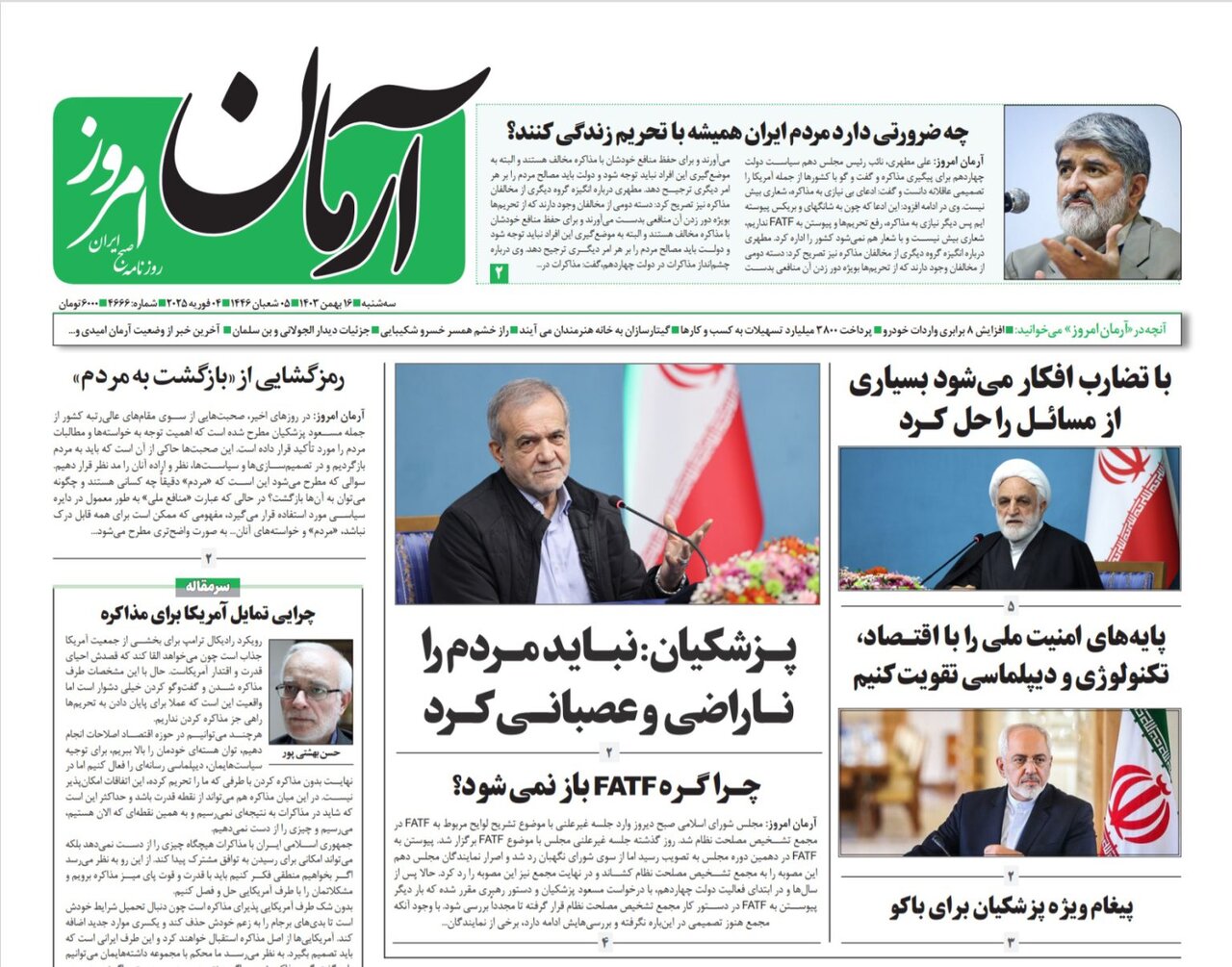Trump on Iran-Israel conflict

TEHRAN - Arman-e-Emrooz wrote in an analysis: Trump has previously stated that he wants to end wars, not start or continue them.
Therefore, it is unlikely that he will give Netanyahu much room to maneuver. Iran is an issue on which Trump and Netanyahu may disagree. Netanyahu has spoken openly about his hope for U.S. support in attacking Iran’s nuclear facilities. But Trump seems ready to increase his “maximum pressure” campaign, but it is not clear that he wants to start a war. Trump has also vaguely indicated that his only concern is Iran’s nuclear program, suggesting that he is prepared to resort to diplomacy rather than force. Therefore, there are few issues on which there is a possibility of immediate agreement between Trump and Netanyahu. Trump can easily ensure that Israel has the means to start a war he will refrain from making new commitments and will probably moderate Netanyahu’s zealot for continuing the war.
Siasat-e-Rooz: Iran is the center of security
Siasat-e-Rooz argued the policy of Trump is based on the principle of creating security in the world. America knows that the new multilateral order is moving toward completion, and this means the end of American unilateralism. Experience has proven to the world that Iran is the center of security because Iran considers the security of the region as its own. By relying on its domestic power, Iran has been able to achieve many technological achievements in aerospace, maritime, and defense fields that are used in the direction of regional security. In contrast, the Zionist regime is the center of crisis-making and insecurity in the region. The truth is that Trump has chosen his path, and like other American presidents, his approach is in line with the interests of the Zionists. Therefore, the solution to repeating the failure of maximum pressure is to turn a blind eye to the mirage of a new agreement and rely on domestic resources to neutralize sanctions through broader engagement with neighbors.
Shargh: Netanyahu's challenge to Trump regarding Iran
Shargh discussed Netanyahu's visit to the United States in an interview with Vahid Bayani, a senior commentator on Middle East affairs. He said: The important issue for Netanyahu in his visit to the United States is to win Donald Trump’s consent for a full-scale confrontation with Iran. Netanyahu is trying to persuade the U.S. president on the path of a military attack. Although Trump does not have a positive view of Iran and will probably increase his maximum sanctions, he does not seem to want a war, especially in a situation in which his domestic and foreign policy formation is in an early stage and still unclear. Of course, it is said that Donald Trump has not clarified his concerns about the Islamic Republic's nuclear program, and this may mean his desire for a diplomatic solution rather than a military confrontation. It is an option that is desirable for Saudi Arabia and the Persian Gulf countries; therefore, it is expected that Trump and Netanyahu will agree on a few issues.
Iran: Never without Iran!
In an article, the Iran newspaper addressed the regional situation and the Islamic Republic’s important presence in the region. It wrote: Regardless of Iran's political approach and the differences of opinion regarding negotiations to reduce tension with the United States and lift sanctions, international observers emphasize the need to pay attention to the current realities in the Middle East, especially after the October 7 event as Tel Aviv is trying to restore a sense of strategic deterrence against its enemies. Conversely, Middle Eastern countries, with the experience gained from the failure of Trump's “maximum pressure” policy against Iran, are now focused on trying to reform their economic and social systems. These countries want to prevent a wider regional war that could undermine the achievements they have made in recent years. Meanwhile, given its policy of constructive engagement with the world and political independence, Iran is singlehandedly capable to manage the current turbulence and provide a model of comprehensive cooperation. Now, the decision on what kind of negotiations with the United States will be used to implement this model is up to Tehran.
Leave a Comment